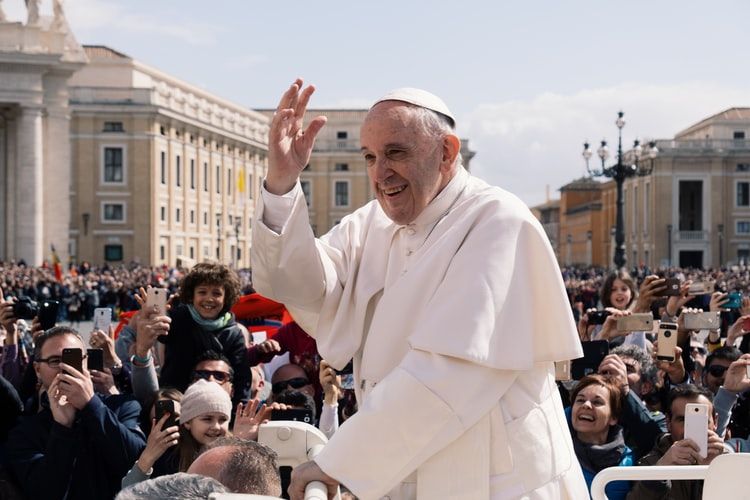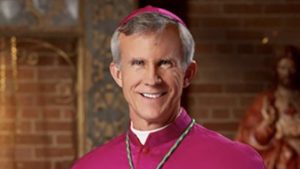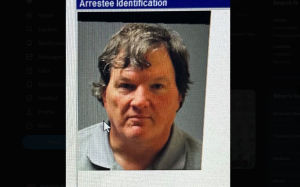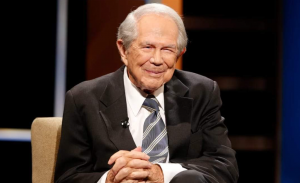Pope Francis lamented centuries of hostility and prejudice that have divided Catholics and Orthodox as he met Friday with the leader of Cyprus’ Greek Orthodox Church and pointed to works of charity as a means to help heal the rift between Catholic West and Orthodox East.
Archbishop Chrysostomos II hosted Francis for private talks at his residence and then invited the pope to the brand new Orthodox Cathedral of St. Barnabas for an encounter with the Holy Synod, the highest decision-making body of the Greek Orthodox Church.
Also Read: Pope Francis offers hope to poor in visit to namesake’s Assisi home
Sitting in front of the gilded iconostasis, or altar, and as the Orthodox clergymen chanted, Francis lamented the “broad furrows” that history had cleaved between Catholics and Orthodox as a result of the 1,000 year-old schism, when God wanted all Christians united.
“Centuries of division and separation have made us assimilate, even involuntarily, hostility and prejudice with regard to one another, preconceptions often based on scarce and distorted information, and spread by an aggressive and polemical literature,” Francis said. “This too makes crooked the path of God, which is straight and directed to concord and unity.”
He said concrete joint works of charity, education and efforts to promote human dignity can help Catholics and Orthodox “rediscover our fraternity, and communion will mature by itself, to the praise of God.”
Also Read: Church, shamed by sex abuse, must better protect kids, says Pope Francis
On his part, Archbishop Chrysostomos said the Cypriot church enjoys “excellent relations” with all churches and has in recent years pursued dialogue with Muslim leaders in the Middle East – an effort he said was largely ruined by “extremist elements” who “inflamed passions.”
“We resolutely believe in the peaceful resolution of our differences whether those are ethnic or religious. And the only correct course is through a genuinely sincere dialogue,” he said.
Although Cyprus comprises a tiny part of the Eastern Orthodox community with around 800,000 faithful, Cypriot church leaders point to the Mediterranean island’s role as the “gateway” to Christianity’s westward expansion owing to its proximity to the faith’s birthplace.
Also Read: COP26: Pope Francis hopes for ‘cry of the Earth’ to be heard
Christianity first spread to Cyprus in 45 A.D., when the Apostle Paul converted the island’s Roman governor, Sergius Paulus, while on the first stop of his first mission to spread the faith. The Cypriot Church was itself said to have been founded by another apostle, Barnabas.
Francis has made Cyprus’ connection to the roots of Christianity a focal point of his visit, which ends Saturday when he heads to Greece. Cypriot Church leaders are keen to strengthen ties with the Holy See since minority Christian communities in nearby countries fear that their faith is under attack amid armed conflicts.
Cyprus itself carries the scars of war. The nation divided along ethnic lines in 1974 when Turkey invaded following a coup aimed at uniting the island with Greece. After the ethnic split, 170,000 Christians fled the breakaway Turkish Cypriot north, where churches, monasteries and other Christian monuments have been destroyed.
Tens of thousands of Muslim Turkish Cypriots fled northward following the end of hostilities.
The destruction of Christian places of worship was among the key issues that Archbishop Chrysostomos raised with Francis in hopes that the pontiff’s political muscle will help reignite stalled talks to reunify Cyprus and help repatriate looted religious works of art including icons, frescoes and mosaics.
Chrysostomos appealed to the pontiff to personally intercede and help restore “respect for our cultural heritage” and “Christian culture which today are brutally violated by Turkey.”
The Archbishop cited the example of Francis’ predecessor, Pope Benedict XVI, who mediated with the German government to bring back 500 religious items that Turkish antiquities smugglers had spirited away to Munich.
Upon his arrival on Thursday, Francis urged Greek Cypriots and Turkish Cypriots to resume the talks, saying threats and shows of force only prolong the “terrible laceration” the island’s people have endured for nearly a half-century.
“Let us nurture hope by the power of gestures, rather than by gestures of power,” Francis told Cypriot President Nicos Anastasiades and other government leaders at the presidential palace, located in the internally recognized, Greek Cypriot-led south.
Prospects for unifying the island have rarely been as bleak as they are now. Turkish Cypriots, under their newly elected leader Ersin Tatar, changed their prerequisites for peace and demanded recognition of a separate state before any deal can even be discussed.
Previously both sides had agreed — with a United Nations Security Council endorsement — that any deal would involve establishing a two-zone federation, with a Turkish Cypriot zone in the north, a Greek Cypriot one in the south and a single federal government regulating core ministries, including defense and foreign affairs.
Acknowledging the stall in talks and the continuing suffering of Christians unable to return to their former homes in the majority Muslim north, Francis encouraged an initiative of the island’s Christian and Muslim faith leaders to promote reconciliation.
“Times that seem least favorable, when dialogue languishes, can be the very times that prepare for peace,” the pontiff said.







